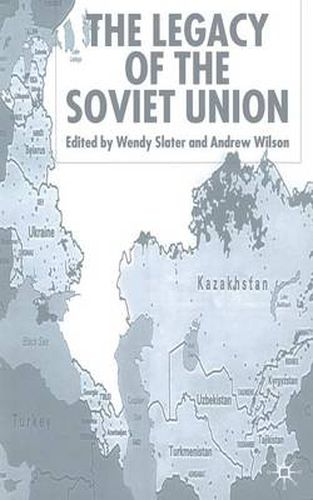Readings Newsletter
Become a Readings Member to make your shopping experience even easier.
Sign in or sign up for free!
You’re not far away from qualifying for FREE standard shipping within Australia
You’ve qualified for FREE standard shipping within Australia
The cart is loading…






This title is printed to order. This book may have been self-published. If so, we cannot guarantee the quality of the content. In the main most books will have gone through the editing process however some may not. We therefore suggest that you be aware of this before ordering this book. If in doubt check either the author or publisher’s details as we are unable to accept any returns unless they are faulty. Please contact us if you have any questions.
The Legacy of the Soviet Union offers a distillation by a group of eminent scholars of their experience of the post-Soviet years. Analysis of the post-Soviet landscape is accompanied by meditations on the impact of the post-Soviet transition on both policy-makers and academics. The book therefore examines both assumptions of ‘transition’ and reconsiders the experience of Soviet communism in the light of its demise.
$9.00 standard shipping within Australia
FREE standard shipping within Australia for orders over $100.00
Express & International shipping calculated at checkout
This title is printed to order. This book may have been self-published. If so, we cannot guarantee the quality of the content. In the main most books will have gone through the editing process however some may not. We therefore suggest that you be aware of this before ordering this book. If in doubt check either the author or publisher’s details as we are unable to accept any returns unless they are faulty. Please contact us if you have any questions.
The Legacy of the Soviet Union offers a distillation by a group of eminent scholars of their experience of the post-Soviet years. Analysis of the post-Soviet landscape is accompanied by meditations on the impact of the post-Soviet transition on both policy-makers and academics. The book therefore examines both assumptions of ‘transition’ and reconsiders the experience of Soviet communism in the light of its demise.